Russell Anderson will always be grateful for his added bonus time with Aberdeen.
The former Dons captain thought his association with the club had reached an end when he departed Pittodrie for Sunderland in the summer of 2007.
A product of the club’s youth system, Anderson saw it all in his two spells with the club, from struggling near the bottom of the table to playing in Europe and tasting cup glory.
But his two spells could not have been more contrasting.
He said: “I look back overall as being a really enjoyable time.
“It’s interesting as I would say the two periods I enjoyed the most (in my career) were the period before I left and the one when I came back as it was almost an added bonus for me at that point.
“I was trying to get fit after being injured for much of the time I’d been away. I’ve been pretty open about it before – I wasn’t sure if I would ever play at that level again.
“To get the success we did towards the end of my career makes me enjoy those two spells more than when I first broke into the team.
“But being part of that difficult time when I broke into the team has helped me appreciate what followed later so much more.”
From fresh faced right-back to club captain
Anderson made his first team debut in 1997 and spent his formative first-team years at the club as a right-back.
A serious knee injury restricted his early period, but he battled back to full fitness, switched to central defence and went on to make more than 300 appearances for the club.
Anderson’s emergence resulted in him serving the last four seasons (2003 to 2007) of his first spell as captain.
His tenure as skipper coincided with an upturn in form under Jimmy Calderwood’s stewardship, but despite the club’s improving fortunes the financial climate at the time led to Anderson leaving for Sunderland for £1 million in June 2007.
He said: “There is so much more to football than just playing. Scottish football was in a very different place when I broke through to what it is like now.
“Most clubs had been spending to try to compete with the Old Firm, who were doing likewise, and it ended up leaving quite a few clubs in a precarious financial position.
“It was one of the implications behind me leaving the club – when Sunderland came in with a bid it was a good opportunity for me to test myself, but the money also came in really handy for the club at what was a difficult time.”
Spell in England a source of frustration
Once it became clear Anderson’s future lay away from Pittodrie the decision to move to the Stadium of Light was an easy one.
He said: “I wasn’t looking for a move as I was really enjoying my football more than I ever had done.
“But the way it played out, it was a case of the club was going in a different direction, so it was probably best for all parties for me to try to find somewhere else and test myself at a higher level.
“When that became apparent, I looked at my move as the next stage of my career.
“Once you get your head round what is happening then of course you start thinking about where you could go.
“Sunderland was a huge club and it is one of the big frustrations for me that I never really cracked it down there for a variety of reasons.
“But, as I said, those difficult periods make the successful ones even more enjoyable.”
Early exit from Derby led to Aberdeen return
One of the reasons for Anderson’s early struggles in England were ruptured ankle ligaments which led to a three-month layoff.
Subsequent loan spells at Plymouth Argyle and Burnley followed before Anderson left Sunderland to join Derby County – but he was restricted to just 19 appearances in 15 months for the Rams.
Anderson agreed a termination of his deal with Derby in December 2011, and a month later he was offered the chance to return home to the Dons by Craig Brown.
The chance to come back to Aberdeen was one Anderson was grateful for, but he knew he had a huge challenge ahead of him following a stop-start spell in English football.
He said: “My expectations were fairly low when I came back and I’m sure a few supporters were quite cynical about me coming back.
“I’m sure a few thought: ‘he hasn’t played a lot of football, so why are we paying a wage to someone who might not be able to deliver and be an asset to the team?’
“I needed to prove to myself as well as everybody else, and it took a while to get back.
“I remember my first close season after I’d made a few appearances.
“I made my second debut at Tynecastle, but between then and the end of the season I felt I was miles off the pace. I always said I wouldn’t stay at Aberdeen if I didn’t feel I could contribute and the last thing I wanted was for people to feel I was just hanging about for a wage at the end of the month.
“That summer was a big one for me. I did a lot of thinking before deciding to have a proper pre-season, one I hadn’t had for a while, and it made a big difference.
“The team the following season started more positively and that helped me.
“Just managing to get a run in the team and playing quite a few games helped get my match fitness back and the edge which comes with playing games.”
League Cup glory in 2014
While injuries had disrupted Anderson’s career, what was never in question was his commitment or consistency when he did play.
Having regained full fitness, he had the honour of leading the club to League Cup glory under Derek McInnes in 2014.
The penalty shoot-out victory against Caley Thistle was far from a classic, but given it had been 19 years since the club’s last silverware it was a memorable milestone.
Anderson said: “The ultimate highlight was when Adam Rooney’s penalty hit the net.
“The game itself was an anti-climax.
“We relied so much on Jonny Hayes and Peter Pawlett for an attacking threat that season and Peter missed the final, while Jonny lasted only a couple of minutes before suffering an injury.
“Losing both of them really affected us, which I think is why the rush when the penalty went in was such an incredible buzz.
“It was special coming back from training every day and seeing the queues up the side of Pittodrie Street for tickets and then afterwards the parade down Union Street.
“The few weeks leading up to and after the final – and of course the day itself – were special.”
Anderson calls it a day
Niggling injuries again struck in the 2014/15 campaign leading to Anderson making the decision to hang up his boots and his final appearance for the club came on the final day of the campaign against St Johnstone.
Anderson ended his career with 10 Scotland caps and 21 goals in his 407 appearances in his two spells for the Dons.
The last man to lead the Dons to cup glory, Anderson will be inducted into the Aberdeen Hall of Fame this week.
He said: “It was a huge surprise actually. I’m delighted obviously!
“You realise people maybe do appreciate what you gave to the club.
“I thought there were quite a few players as much if not more deserving than me, so to get the news was a nice surprise.
“When you see who’s on the list, it is humbling.
“I know a big push was made pre-Covid to get the hall of fame established again and when you look at the list there are some great players who played hugely significant roles for the club over the years.
“It’s nice to be thought of in those terms.”
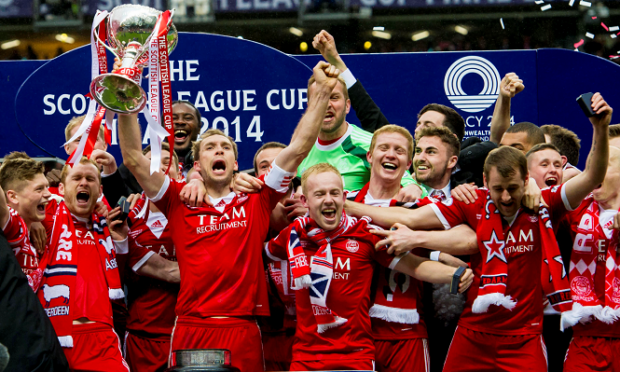
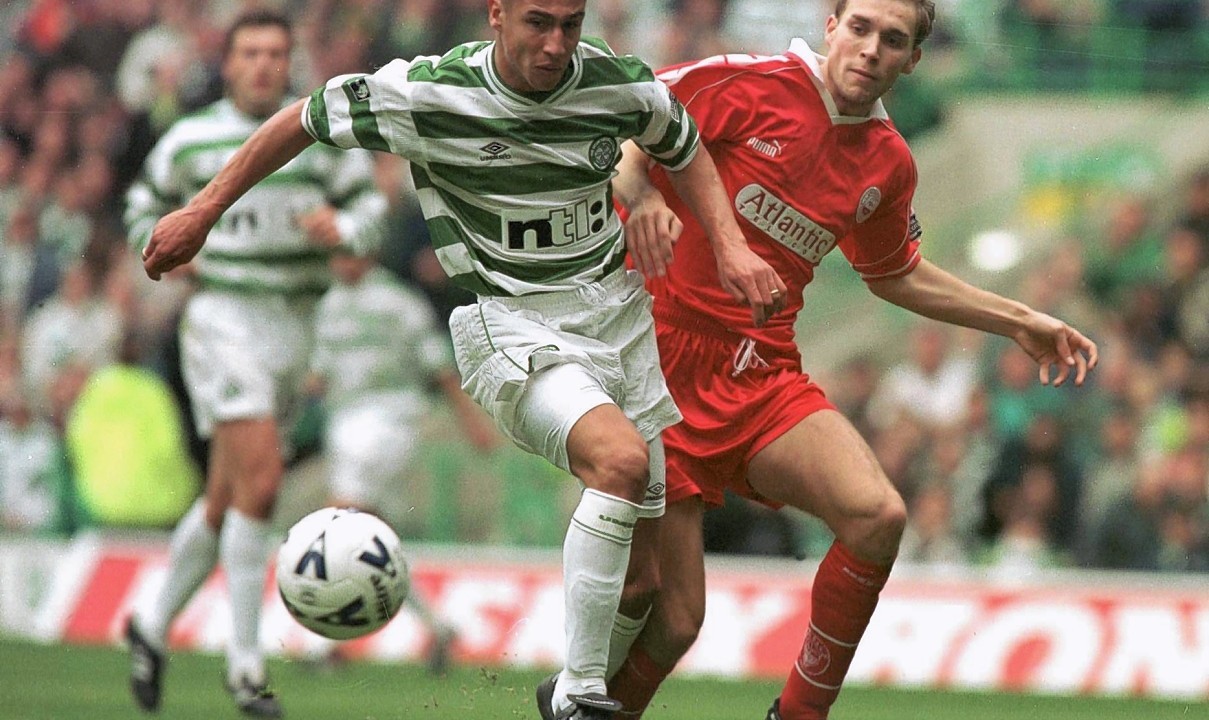
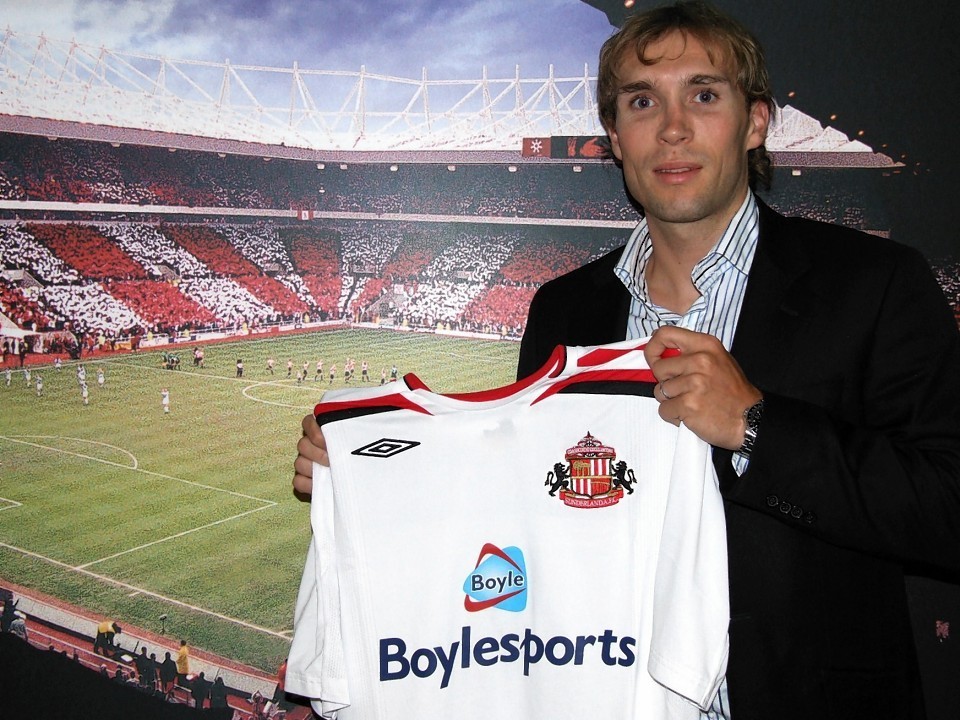
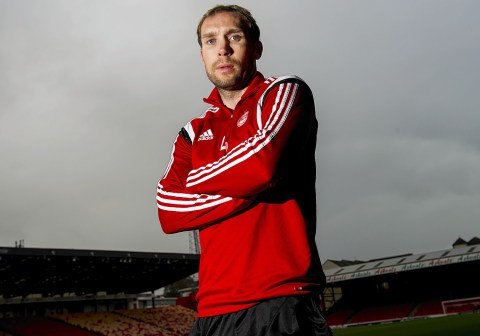
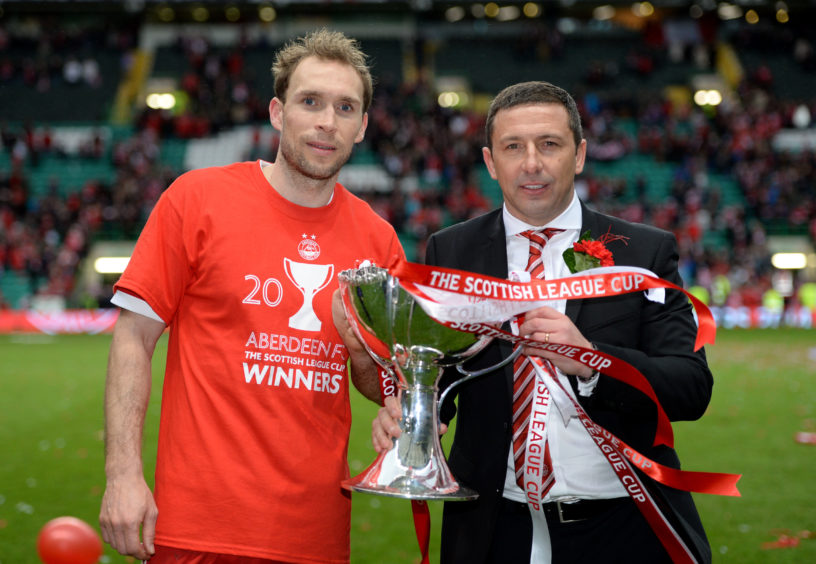
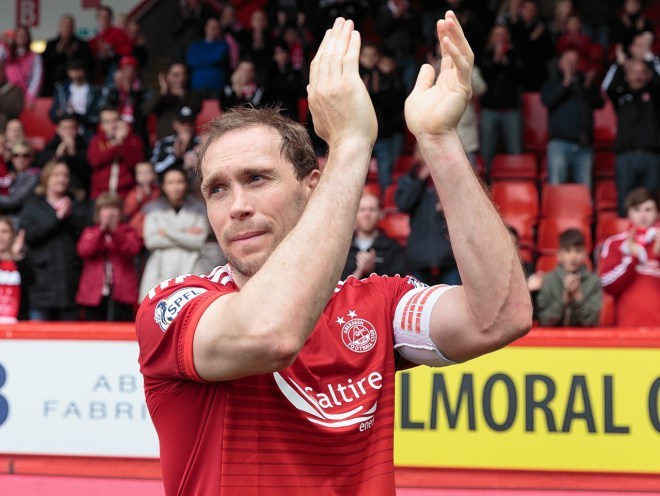
Conversation